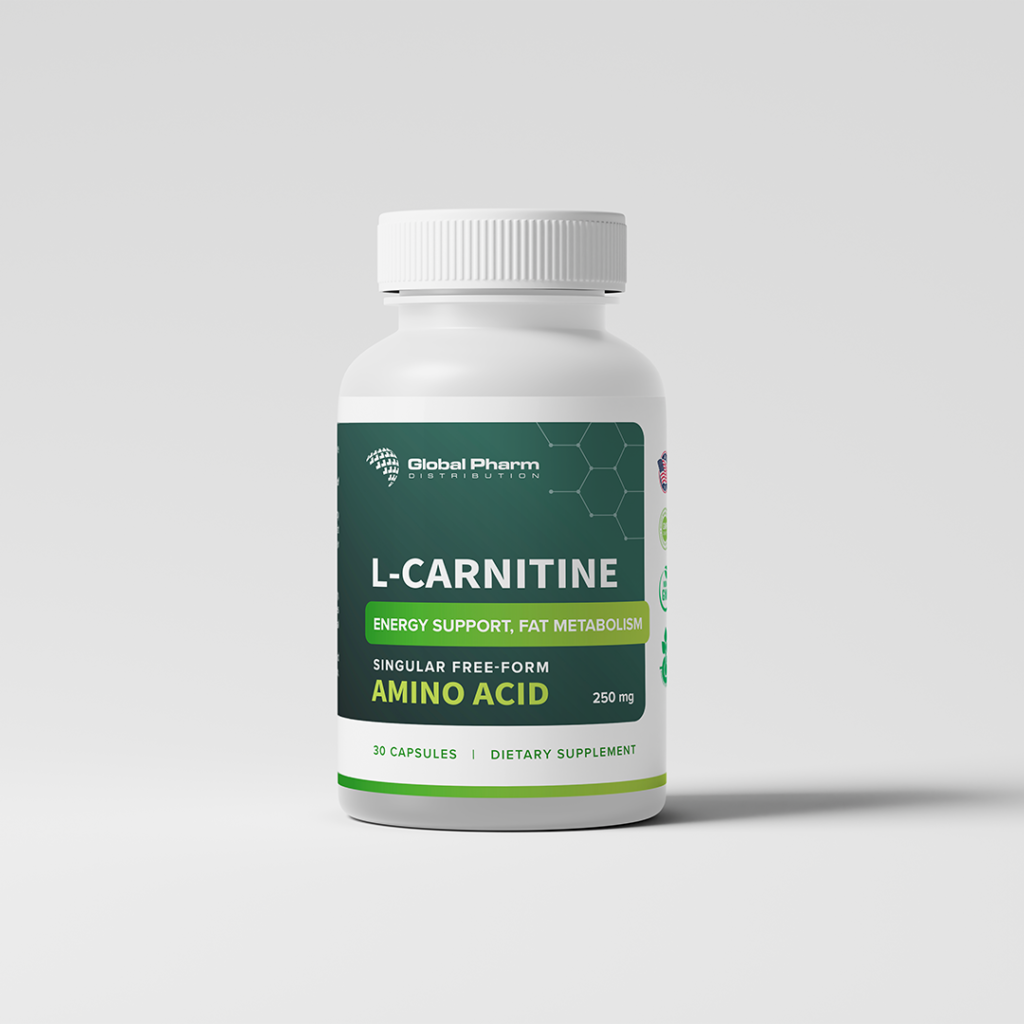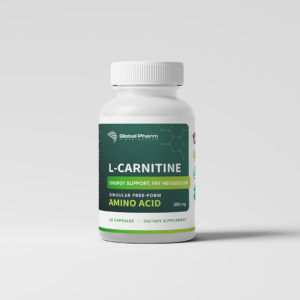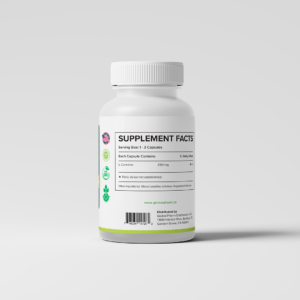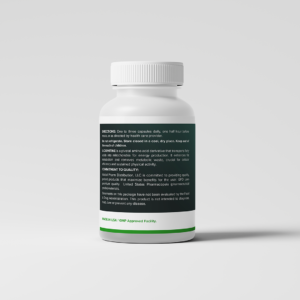Description
NDC: 53335-055-10
Weight: 4 Oz
L-Carnitine, often classified as a vitamin-like nutrient related to the B-group (vitamin BT), is a physiological substance essential for energy production and fat metabolism. Unlike typical amino acids, it is not used in protein synthesis or as a neurotransmitter but facilitates the transport of long-chain fatty acids into mitochondria, where they are burned for energy. This process is critical for muscular energy, and deficiencies may lead to low energy, muscular weakness, mental confusion, angina (heart pain), or weight gain. Research also suggests benefits in exercise tolerance and heart conditions like angina and congestive heart failure (e.g., Cherchi et al. 1985).
L-Carnitine is particularly beneficial for individuals seeking to enhance energy levels, support cardiovascular health, or manage metabolic stress. Its role is vital in conditions like diabetes or ischemia, where fatty acid metabolism is impaired (e.g., Malone et al. 1999). Manufactured using premium pharmaceutical-grade materials in a GMP-approved facility in the USA, L-Carnitine is free of fillers, binders, or coloring agents, with no known side effects when used as directed.
Directions: Take 1-3 capsules daily or as advised by your healthcare provider. Pair with vitamins and minerals; GPD’s MVM (Multivitamin) is recommended.
Key Benefits
- Enhances Energy Production: Supports fat metabolism in mitochondria.
- Improves Cardiovascular Health: May aid angina and heart function.
- Boosts Exercise Tolerance: Enhances stamina and recovery.
References
- Cherchi A, et al. (1985). “Effects of L-carnitine on exercise tolerance in chronic stable angina.” International Journal of Clinical Pharmacology, Therapy and Toxicology, NIH.
- Malone JI, et al. (1999). “Diabetic cardiomyopathy and carnitine deficiency.” Journal of Diabetes Complications, NIH.
- Arenas J, et al. (1991). “Carnitine in muscle, serum, and urine of nonprofessional athletes.” Muscle & Nerve, NIH.
- Nuesch R, et al. (1999). “Plasma and urine carnitine concentrations in athletes.” Drugs Under Experimental and Clinical Research, NIH.
- Goa KL, Brogden RN. (1987). “L-carnitine: A preliminary review.” Drugs, NIH.
These statements have not been evaluated by the Food and Drug Administration. This product is not intended to diagnose, treat, cure, or prevent any disease. Consult a doctor or medical professional before use, especially if you have underlying health conditions or are taking other medications.
Additional Information The following points provide insight into L-Carnitine’s plasma levels and their association with various health conditions, reflecting its role in metabolism:
- Normal Range: 20-50 micromol/L (approximate clinical range).
- Conditions Associated with Low Levels:
- Primary carnitine deficiency (genetic disorder affecting fatty acid oxidation)
- Secondary carnitine deficiency (e.g., dialysis patients, chronic heart failure)
- Diabetes (impaired carnitine transport or utilization)
- Conditions Associated with High Levels:
- Excessive supplementation (from overdosage or dietary intake)
- Kidney dysfunction (reduced excretion in renal failure)
- Certain metabolic disorders (e.g., trimethylaminuria, affecting carnitine metabolism)
Notes: L-Carnitine is essential for transporting fatty acids into mitochondria for energy production and is critical in fat metabolism. Deficiencies may lead to energy deficits, muscular weakness, or cardiovascular issues like angina. Low levels are linked to genetic or secondary conditions, while high levels may result from supplementation or impaired excretion. These associations are correlative and require further research for causal confirmation. Consult a doctor or medical professional before use, especially if you have underlying health conditions or are taking other medications.
 Global Pharm Distribution, LLC
Global Pharm Distribution, LLC




